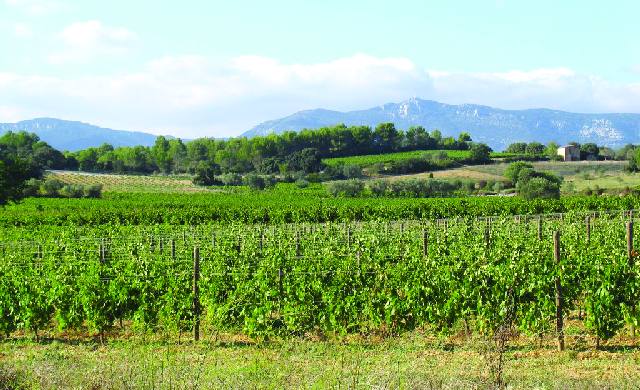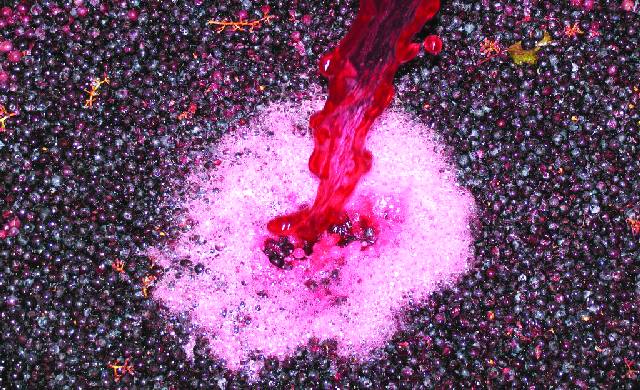Up until fairly recently, the only wines labeled “organic” were bad wines. This is not to say that there weren’t excellent organic wines out there—but they weren’t labeled as such, because to the average consumer, “organic” meant hippie health food that you consumed for the sake of ideology, not taste. So even if you were a winemaker who did follow organic practices, you would only hurt your sales by advertising this fact.
But with increased concern about health and the environment, organic foods have moved into the mainstream with more and more consumers asking questions about organic wines.

Alain Chabanon, who makes organic wines in the Languedoc region of southern France says, “Organic wines were considered inferior, a ‘green’ fad, an anti-establishment statement. But now there is a clear trend in the demand for cleaner, purer products, and so the marketing of wine has gone in that direction.”
“I don’t appreciate unnatural processes and I am always surprised when I meet people who don’t want to drink organic wines. It’s been a bit abused and you have to be cautious and check that it’s fully organic; but to not want to drink organic wines at all is bullshit,” says Maximilen Fedkiw, sommelier and co-owner of Le Bistrot du Sommelier.
What exactly is organic?
Before man started messing around with chemicals, all wine was organic. So really this “new” trend is a return to old methods. But there still isn’t an agreement on what makes wine “organic” today. In some countries the government decides; in other countries a private certification organization sets the rules.
In general terms, an “organic” wine is made without any chemical fertilizers or pesticides—that applies to the grapes growing in the vineyards as well as to the winemaking in the winery.
The percentage of organic grapes required for a wine to be considered organic can vary from 100 percent to as little as 70 percent, depending on the regulatory body. In some countries, wines with sulfites added cannot be classified organic; in others this is considered alright. In certain countries, the organic standard must also apply to sterilization of the equipment, bottles and corks used; others aren’t so strict. And not every wine that is labeled organic has been independently certified.
What do you gain?
There are three main reasons why you might want to go organic. The first: Concern for the environment. “The decision to make organic wine is part of my life philosophy. I try to do my part by not adding pollution to an already polluted planet Earth,” says Mr. Chabanon.
The second: Your health. The lack of manmade substances can only be a good thing.
The third: Simply because they are better—or they can be, in the hands of a skilled winemaker. According to Mr. Chabanon, organic grapes make better wine. “The taste is better due to the reduced yield,” he insists.
What do you give up?
As with organic food, an organic wine will nearly always be more expensive than a comparable non-organic wine. Without the use of herbicides and chemical fertilizers, winemakers need to spend more time taking care of the plants.
Another disadvantage for consumers is that you have fewer choices. Most of the wines on the market are non-organic. Those that are organic are not easy to find. Making it even more confusing, some winemakers sell both organic and non-organic wines.
At the end of the day, you’ll have to decide whether it’s worth the extra effort. We say let your palate and conscience guide you.

The old-fashioned way
Some facts about winemaking at Domaine Alain Chabanon
· No fertilizer or pesticides are used in the vineyards
· They prune the plants a lot to keep yields low
· The grapes are picked by hand and only in the morning
· After picking, the grapes are immediately taken to the winery in shallow (so they don’t get squashed), open-weave (so they can breathe) baskets
· The grapes are sorted by hand
· The grapes are not pumped into the tanks—gravity does the trick (the tanks are in the basement and are filled from above)
· The grapes get a foot-massage (really)—pigeage in French
· The wine is not filtered
· The wine is not fined (adding something to make the wine more clear)—collage in French
· They do not add yeast
Try wines from Domaine Alain Chabanon, Languedoc, France (www.domainechabanon.com) at Le Bistrot du Sommelier (#01-01 Prinsep Place, 46 Prinsep St., 6333-1982) or through Prodis Wine (bouverat@starhub.net.sg, 9729-6410).
More
Sommelier Recommendations
Where to Buy
Tasting for Dummies
Organic Wines: Old Methods in New Bottles
Advertisement















